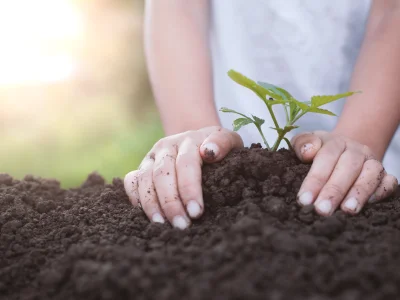The European Green Deal is a package of different initiatives to set Europe on the path to making a green transition, ultimately achieving the goal of becoming climate neutral by 2050. The Green Deal supports this shift towards a fair and prosperous society with a modern and competitive economy.
It emphasises the need for a holistic and cross-sectoral approach, with all relevant sectors contributing to the overall climate goal, such as climate, environment, energy, transport, industry, agriculture and sustainable finance.
This research area spans various topics across faculties and touches on almost all organisational units as well as other research areas at the Uniersity of Applied Sciences Wiener Neustadt.
We perform research and development in the following topics:
- Analysis of natural substances - chromatography, spectroscopy and molecular biology
- Conscious and sustainable consumption and the sharing economy
- Bioactive metabolites from microorganisms - elucidation of mechanisms of action
- Efficient, sustainable and safe generation, storage and distribution of energy, including its social acceptance
- Development of miniaturised chemical propulsion systems for satellites for the substitution of toxic and environmentally harmful propellants as well as for controlled de-orbiting at the end of missions to avoid space debris
- Development of miniaturised electric propulsion systems for satellites to save fuel and to realise demanding science missions of ESA and NASA, the data of which serve to refine current climate models
- Development of nanosatellites for space missions to study weather and climate phenomena
- Environmental sensing
- Circular economy, resource efficiency and development of sustainable product, production and logistics systems
- Food science to develop new products and processes and to optimise existing ones, including the use of by-products from production
- Sustainable consumption and production patterns, green marketing
- Optimisation of biotechnological processes and production of recombinant proteins
- Life-cycle assessment for the ecological evaluation of products, services or industrial sites
- Technical, economic and social aspects of energy communities
Infrastructure:
- Laboratory for the development and qualification of propulsion systems as well as components for space flight (vacuum chambers from 10 dm3 to 25 m3, test stand for chemical propulsion systems, vibration test stand, shock table, thermal vacuum tests)
- CubeSat Development Laboratory
- Smart Energy Laboratory
- Innovation Lab (3D Printing Lab, Assembly Lab, Electronics Lab, Laser Lab, Metal Lab, Robotics Lab, Textile Lab, Wood Lab, Special Projects Lab - lots of space for big ideas)
- Microbiology Laboratory (incubators, autoclave, shaker, fermentation facility for bioreactors, vibrating mill)
- Molecular Biology Laboratory (RT PCR, Fluorescence Microscope, Sterile Workbench)
- Bioanalytics Laboratory (LC-HRMS, HPLC, GC-MS, Nano LC-MS/MS)
- Spectroscopy Laboratory (NIR, MIR, Raman microscope)
- Environmental Biotechnology Laboratory (extraction systems, elemental analyzer, Karl-Fischer coulometer, freeze dryer)
- Product development laboratory with baking station, grain mill, disperser and high-pressure homogeniser
- Sensory laboratory with preparation kitchen, computer-aided test cabins and tasting table
Contact
Feel free to contact us: FuE@fhwn.ac.at
